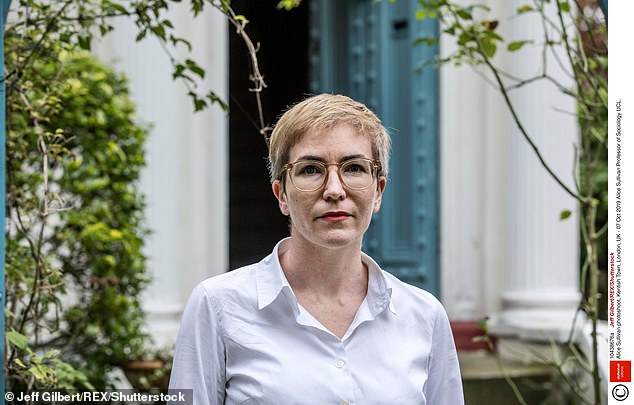The biological sex of almost 10,000 university applicants is not known as thousands now ‘prefer not to say’ or ‘use another term’, new data shows.
Figures from admissions body Ucas show almost 5,000 applicants chose each option this year, instead of ticking ‘male’ or ‘female’.
The two new categories for online university applications were introduced a year ago, in a bid to be more inclusive of trans and non-binary students.
Ucas has previously defended the decision, saying it is ‘important that institutions know how their students identify.’
However, Professor Alice Sullivan, a sociologist from University College London, said the figures proved vital data was being lost.
She told the Daily Mail: ‘The different experiences and choices of girls and boys as they leave school and apply for university are a key determinant of later outcomes, including employment and income.
‘The substantial loss of data on sex will lead to a loss of accuracy in research on these questions.
‘Replacing clear data collection on sex with a “gender” variable which confuses sex and gender identity is unjustifiable.
‘Sex and gender identity are distinct, and data on each of these should be collected via separate questions. Muddling the two does not provide accurate data on either.’

The biological sex of almost 10,000 university applicants is not known as thousands now ‘prefer not to say’ or ‘use another term’, new data shows (pictured: Professor Alice Sullivan)

Figures from admissions body Ucas show almost 5,000 applicants chose each option this year, instead of ticking ‘male’ or ‘female’ (file picture)
This year, 4,660 selected ‘I use another term’, while 4,980 selected ‘prefer not to say’ – each making up just under 1 per cent of the total number of applicants.
In 2022, when the new system was announced, Professor Sullivan led 70 academics in writing an open letter saying it would lead to an ‘erosion of sex-based data’ in education that will make it ‘impossible to track trends over time’.
Professor Sullivan published a Government-commissioned review in March, which highlighted the harms of failing to collect data on biological sex.
Stephanie Davies-Arai, director at Transgender Trend, said: ‘Sex is a key data variable for research, yet this data has been lost for almost 10,000 students because of the nonsense of “gender identity.”
‘Having been taught in school to doubt biological reality, it is hardly surprising that so many university applicants are confused about whether they are male or female.
‘How many other young people are equally confused?
‘This should be a wake-up call for the Department for Education to get gender identity teaching out of schools.’
The two new categories were first introduced in 2024, when 5,820 ticked ‘I use another term’ and 4,920 ticked ‘prefer not to say’.
Ucas was approached for comment and they confirmed the figures are correct.
Share or comment on this article:
Biological sex of 10,000 university applicants not known as many now ‘prefer not to say’